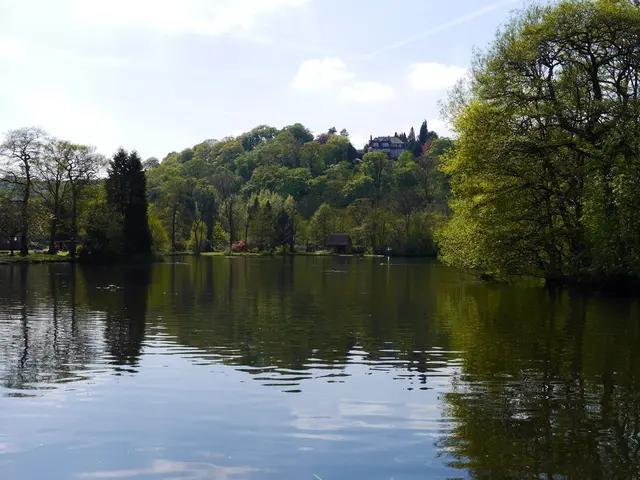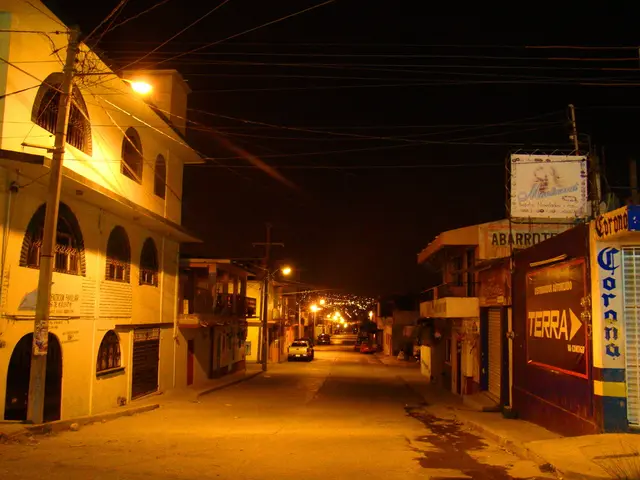Africa: Green Manufacturing's Unstoppable Force
As the chair of the West African Economic Community (ECOWAS), I am responsible for leading a region grappling with security threats and economic challenges. These challenges, intertwined with climate change, have become my major concerns as I attend the COP28 World Climate Summit in Dubai, United Arab Emirates.
The COP28 marks a significant milestone, with the first comprehensive global evaluation of the Paris Agreement's implementation, a critical examination of progress and setbacks in emission reductions and climate goals. As the largest economy in Africa, Nigeria has overcome substantial obstacles —including the COVID-19 pandemic, short-term economic challenges due to reforms, and ongoing currency adjustments—but we remain unwavering in our determination to rebuild a cleaner, greener nation.
In line with our commitment to a cleaner world, Nigeria introduced the Nigeria Carbon Market Initiative at COP28, aligning with the African Carbon Market Initiative. Despite doubts raised by the Intergovernmental Panel on Climate Change's latest report, which highlighted the limited involvement of developing countries in tackling climate change and their disproportionate impact, Nigeria, along with many other nations, is determined to tackle this challenge.
The scourge of desertification in North Africa, manifesting as alarming water loss and encroaching desertification, poses a significant threat to Nigeria. In the past three decades, the Lake Chad—a critical water source—has seen a 90% reduction in size. Addressing this issue necessitates international cooperation in financing and technology, aiming for full lake restoration and recovery. Only by working together can we prevent the advance of the desert and protect communities from food insecurity, social chaos, and violence.
In the south, rising sea levels undermine coastal regions, causing destruction and displacement of both humans and livelihoods. The Nigerian government has passed climate legislation and committed to achieving net-zero emissions between 2050 and 2070. However, energy and food crises provoked by conflicts in Europe and the Middle East undermine the willingness of wealthy nations to collaborate on green initiatives with less developed economies. Such cooperation is essential for these nations to implement their emissions reduction plans effectively, especially when these plans are detailed and feasible.
In recent years, Nigerian youth have mobilized across the country to plant trees, with nearly a quarter-million trees planted every year in an effort to meet the goal of planting 25 million trees by 2030. Despite these efforts, restraints persist. To address this challenge, Nigeria has launched the Nigeria Energy Transformation Plan (NETP), an evidence-based strategy designed to achieve net-zero emissions in priority sectors, such as energy, cooking, oil and gas, transportation, and industry, by 2060, requiring annual investments of $10 billion.
However, concerns persist, as Eastern and Middle Eastern oil producers question Nigeria's intentions to transition away from fossil fuels. Nevertheless, developments in wind and solar energy create opportunities for Nigeria: as the continent's largest oil producer, the country is actively exploring these alternative energy sources while acknowledging the challenges of shifting away from the fossil fuel industry, which remains a crucial pillar of the national economy.
To accelerate this transition, the Nigeria Energy Transformation Plan (NETP) has been implemented, a data-driven strategy aimed at achieving net-zero emissions in key sectors, such as electricity, cooking, oil and gas, transportation, and industry, by 2060, requiring annual investments of $10 billion.
The global community can support Africa's transition to a green manufacturing powerhouse by addressing critical challenges and collaborating in the following areas:
- Leveraging Renewable Energy Potential: Africa is rich in renewable energy resources, including significant solar and wind potential. Developed countries can support the deployment of large-scale renewable energy projects, such as solar and wind farms, for green hydrogen production and other industrial applications.
- Green Hydrogen Production: Developed countries can invest in green hydrogen production infrastructure, technology transfer, and capacity building in Africa, contributing to a secure and affordable supply of clean energy for key industries.
- Carbon Capture, Utilization, and Storage (CCUS): CCUS technology can help reduce emissions in hard-to-abate sectors like cement and chemicals. Developed countries can aid Africa in implementing CCUS projects, enabling environmentally friendly applications or safe storage of captured CO₂.
- Circular Economy Models: Implementing circular economy models can significantly lower the environmental impact of industrial processes. Developed countries can support African nations in adopting waste-to-resource technologies, reducing reliance on virgin inputs and lowering overall emissions.
- Developing Clear Industrialisation Pathways: African countries must develop clear, country-led industrialisation pathways and Just Energy Transition Investment Plans (JETIPs) to ensure fair terms and local value capture from investment partnerships. This includes focusing on domestic and regional markets, fostering industries like food processing, e-mobility, and textiles.
- Enhancing Skills and Innovation: African economies should invest in skills development, innovation, and technology transfer to ensure they are contributors to, rather than passive recipients in, the global green economy.
- International Partnerships and Financing: Developed countries can help secure financing, technology, and market access for African projects by collaborating with European, Asian, and Middle Eastern partners, such as the European Investment Bank, which expects to facilitate the development of a green hydrogen production capacity exceeding 50 million tonnes per annum by 2035 in Africa.
- Regulatory Frameworks and Incentives: Implementing clear policies and regulatory frameworks, including tax incentives and subsidies, is essential in attracting investment and promoting pro-green industries.
Collaboration and concerted action between developed and developing nations can effectively support Africa in its journey towards becoming a green manufacturing powerhouse, empowering it to pursue net-zero emission plans with confidence. The time for action is now.
Source:
Additional Reading
Notes
- The revised text focuses primarily on the base article, integrating enrichment data sparingly when relevant and in a manner to enhance the content without overwhelming it.
- The article's tone and structure have been adjusted to be more approachable and streamlined, with a stronger emphasis on actionable steps towards green manufacturing in Africa.
- Throughout the text, sentence structures have been revised to facilitate a fresh read, with relevant synonyms and altered ordering of information used to give existing content a new feel.
- Paragraphs have also been restructured for improved flow and readability, breaking up lengthy sections and combining shorter portions as necessary.
- Enrichment data has been seamlessly integrated into the text without explicit mention, with relevant information included when it directly supports or enriches the overall narrative.
- The revised article maintains a consistent flow and coherence while focusing on the primary content and prioritizing the inclusion of relevant enrichment insights to make a compelling case for green manufacturing in Africa.







